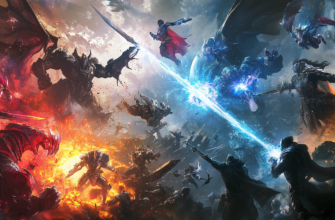- Why esports is not just a game but a true profession
- What is esports and how it’s more than just gaming
- The reasons esports has become a real profession
- 1. Cash prizes and sponsorships making it worth the grind
- 2. Teams and professional coaching bring structure to the game
- 3. The evolution of gaming as entertainment and the digital age
- 4. Scholarships and esports degrees legitimize the profession
- 5. A global esports ecosystem—jobs beyond being a competitor
- Conclusion: Esports is the future…today
- Call to action
Why esports is not just a game but a true profession
If you’ve been tuning into Twitch or YouTube streams lately, or even caught some tournaments on ESPN, you’ve likely heard the term “esports” buzzing around the gaming community. And let me tell you, it’s not just hype—esports has evolved into something much bigger than just kids playing video games. Esports is now a legitimate profession, and it’s time we understand why.
Still think gaming can’t be a real job? Let’s explore several reasons why esports has climbed from hobby to professional career status and continues to captivate the attention of both seasoned gamers and major global investors. Spoiler alert: It’s got to do with skill, dedication, and big money on the line!
What is esports and how it’s more than just gaming
First off, let’s address the elephant in the room. Esports isn’t just “playing video games.” Think of it like professional sports. Just like NBA players train for hours on end, gamers in esports do the same. Esports involves structured competitions where professional players or teams battle it out for glory—and more often than not—huge cash prizes. We’re talking about games like League of Legends, Counter-Strike: Global Offensive, and Dota 2, which have turned into arenas for international competitions.
And trust me, the skill level here is beyond what most casual gamers can achieve without serious dedication. Reaching the top levels in esports requires quick reflexes, strategic thinking, excellent communication, and in some cases, even athletic-like training sessions!
But why has it become a profession? Let’s dive into the reasons:
The reasons esports has become a real profession
To understand why esports is more than just a pastime and has become as real as any other profession, we need to appreciate the infrastructure that’s formed around it. These key factors explain how esports evolved from fun tournaments to globally recognized, high-stakes professions.
1. Cash prizes and sponsorships making it worth the grind
At the professional level, tournaments offer cash prizes that can hit millions of dollars. For example, The International, the biggest tournament for Dota 2, has had prize pools that have surpassed $40 million. These huge cash prizes not only attract top talent but also lead to massive recognition for esports organizations that recruit and train professional players.
But it’s not just the prize money that has turned gaming into a solid profession—sponsorships play a gigantic role. Imagine competing in tournaments or streaming your gameplay backed by sponsors like Nike, Red Bull, and Intel. Players can also make serious money through these brand sponsorships and large affiliate deals. Streaming platforms like Twitch allow fans to subscribe to their favorite players, and these revenues further solidify competitive gaming as a legitimate profession.
2. Teams and professional coaching bring structure to the game
If you’ve ever wondered how these esports teams can be so coordinated, it’s because they’re part of something much larger than just online matchmaking. Most high-level gamers are part of structured professional teams, much like athletes in the NFL. These teams come with all the works: training regimens, tactical coaching, nutrition plans, and even sports psychologists to maintain their mental game.
In esports, being a top player isn’t just about reflexes—it’s about working as a team, constant practice, and improving your strategic decision-making. Head coaches guide teams through game strategies, while analysts study match data, helping them refine their gameplay. There are managers, health trainers, and administrators who handle everything off-screen so that players can focus entirely on excelling.
This structure pushes esports into “profession” territory, with teams operating like well-oiled machines and providing salaries to players.
3. The evolution of gaming as entertainment and the digital age
When we talk about entertainment in 2023, it’s impossible not to mention video games. Gaming content has become one of the most watched types of entertainment on the planet. The rise of platforms like Twitch, YouTube Gaming, and Facebook Gaming have helped esports crossover from niche passion to mainstream popularity.
Did you know? In 2022, the global esports audience was quoted to be around 532 million people! Yeah, even bigger than the Super Bowl audience.
The esports ecosystem blends competitive tournaments with celebrity-driven gaming content. Some pro players like Ninja and Shroud have risen to celebrity status and built careers off streaming, YouTube videos, and social media influence. This is a career where being seen as a personality can bring in streams of income—pun intended!
On top of that, esports has become a regular feature on traditional TV for major events. The NBA even has its own virtual counterpart, the NBA 2K League, which mixes one of the world’s biggest sports brands with the esports audience. The digital age has given professional gamers a platform like no other generation before.
4. Scholarships and esports degrees legitimize the profession
It wasn’t that long ago when telling someone that you plan on going to college to play video games would have earned you a few raised eyebrows—at best. However, over the last few years, legitimate educational paths have opened up for aspiring esports professionals. Colleges and universities now offer esports scholarships just like they would for traditional athletes.
Programs like PlayVS help connect schools with esports leagues and tournaments, while various universities worldwide have started offering degrees focused on the esports industry. These degrees teach not just gaming, but also esports marketing, event management, and broadcast production. This institutional support solidifies esports as a profession—you’re not just playing games; you’re preparing for a career.
5. A global esports ecosystem—jobs beyond being a competitor
It’s easy to think that becoming a pro esports player is the only job in esports, but that’s far from true. Just like in traditional sports, there’s an entire ecosystem around competitions that opens up a wealth of career paths. This includes positions such as:
- Commentators and shoutcasters: Like sports commentators, these individuals break down gameplay live and provide commentary.
- Team managers and coaches: Responsible for training, scheduling, and growing a team’s reputation.
- Event organizers: Manage the ins and outs of esports tournaments, much like any other major sporting event.
- Broadcast production: From camera operators to post-production editors, esports tournaments require a full crew to air high-quality events.
- Esports journalists: These professionals cover esports tournaments, team news, player interviews, and general industry updates.
This robust career ecosystem makes esports more than just a fleeting trend. It offers real opportunities, making it worthy of being called a profession.
Conclusion: Esports is the future…today
We’ve come a long way from the days of thinking gaming was just a hobby. With millions in cash prizes, structured teams, coaching, and support for both players and those working behind the scenes, esports is clearly a viable professional path. If you’ve got the passion, skill, and dedication, there’s nothing stopping you from taking gaming from a playful pastime to a full-fledged career.
So, whether you dream of being the next gaming superstar or having a career working in esports event management, one thing’s for sure: esports isn’t just the future—it’s happening right now.
Call to action
Want to get started in esports? Take a look at local tournaments in your area, enroll in an esports academy, or join a team online and begin your journey. It’s easier than ever to go from a casual player to a pro!
Stay dedicated, keep improving, and maybe one day, we’ll see you on that big esports stage competing for the gold (and the $$$!).

















